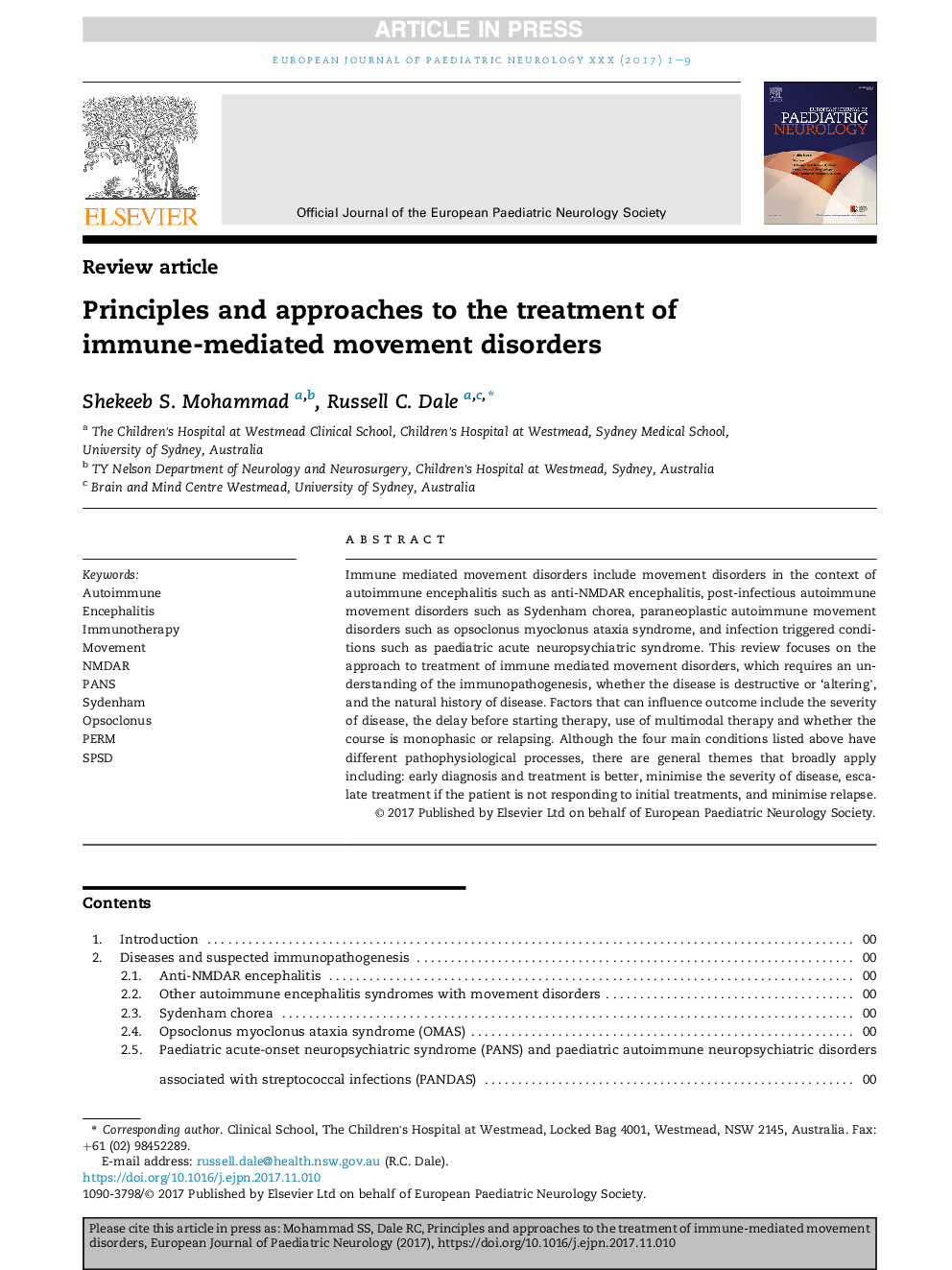| Article ID | Journal | Published Year | Pages | File Type |
|---|---|---|---|---|
| 8684411 | European Journal of Paediatric Neurology | 2018 | 9 Pages |
Abstract
Immune mediated movement disorders include movement disorders in the context of autoimmune encephalitis such as anti-NMDAR encephalitis, post-infectious autoimmune movement disorders such as Sydenham chorea, paraneoplastic autoimmune movement disorders such as opsoclonus myoclonus ataxia syndrome, and infection triggered conditions such as paediatric acute neuropsychiatric syndrome. This review focuses on the approach to treatment of immune mediated movement disorders, which requires an understanding of the immunopathogenesis, whether the disease is destructive or 'altering', and the natural history of disease. Factors that can influence outcome include the severity of disease, the delay before starting therapy, use of multimodal therapy and whether the course is monophasic or relapsing. Although the four main conditions listed above have different pathophysiological processes, there are general themes that broadly apply including: early diagnosis and treatment is better, minimise the severity of disease, escalate treatment if the patient is not responding to initial treatments, and minimise relapse.
Related Topics
Life Sciences
Neuroscience
Developmental Neuroscience
Authors
Shekeeb S. Mohammad, Russell C. Dale,
